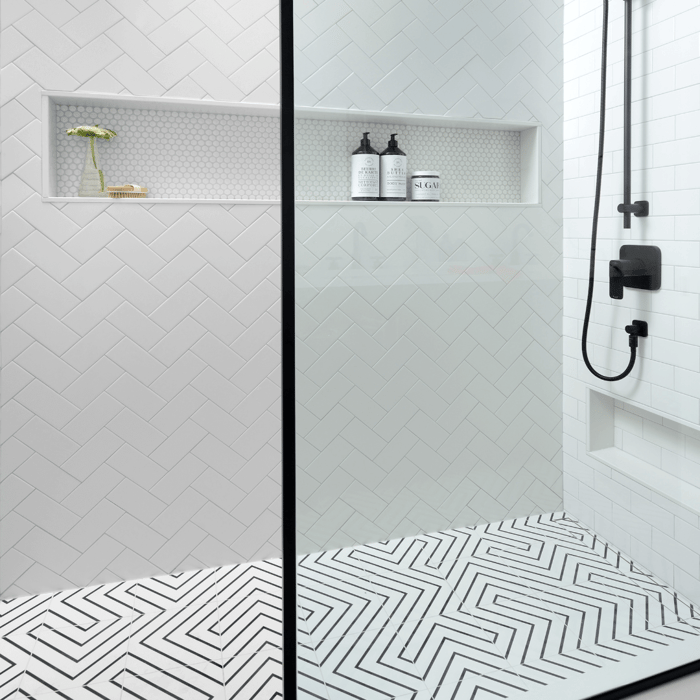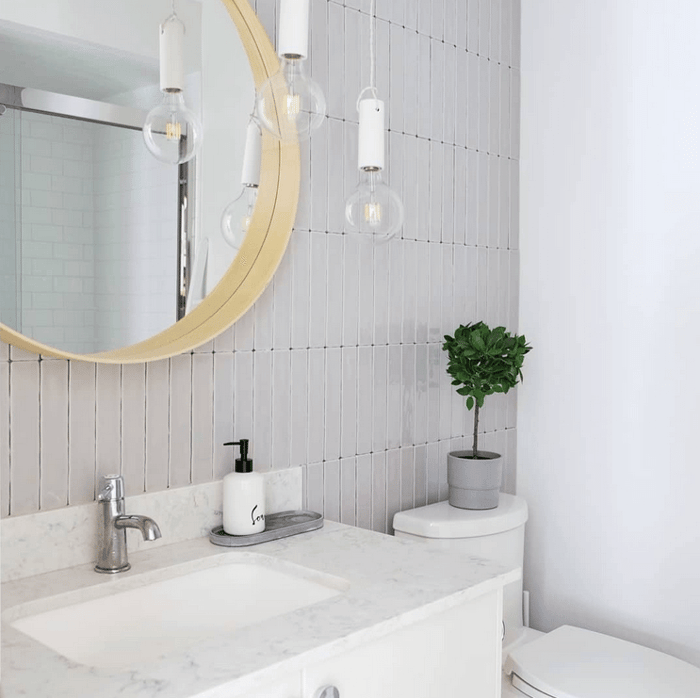Wondering About Tile Durability?
Porcelain and ceramic tiles: they’re tough, durable, and a designer’s dream. But let’s face it, understanding the various specs can feel like decoding alien language. And when you're thinking about tile durability in particular, it can be difficult to ensure that you're both getting something that will last, and also not potentially over-specifying a tile for your project.
Navigating the world of tile specs is a jungle of conflicting advice, which we'll try to simplify in this series of posts. We’ll break down those specs so you can confidently choose the perfect tile for your project.
What is a PEI rating?
With the advent of digital printing technology for tile, much of the porcelain and ceramic tile that you see in stores is glazed. This means that there’s a thin layer of glass-like coating applied to the surface of the tile, often for decorative purposes.
But not all glazes are the same, and perhaps the most important consideration for you is how resistant to repeated abrasion and traffic that glaze going to be. Will it be durable enough to use in the part of my home or business than I’m planning to use it in?
Thankfully, there’s a standardized way that tile manufacturers test and classify the strength of their glazes: the Porcelain Enamel Institute’s abrasion rating, or as you’ll more commonly see, a tile’s PEI rating.
The PEI Durability Rating is the industry standard measure that indicates how resistant a glazed tile is to visible marks caused by repeated wear on the tile. This actually takes into account both the strength of the glaze as well as its colour -- you’ll find that deep, dark colours may have lower PEI ratings than lighter colours, even when the tiles use glazes with the same strength.
The most important takeaway for you is to make sure that the tile surface will be able to withstand the traffic in the space that you’re planning to install your tile, whether that’s a floor, entry hallway, or even a commercial space like a restaurant.
One thing to call out is that you don’t always need to try to buy the tile with the highest PEI rating, just the tile with a high enough rating for your intended use. A lot of beautiful decorative tiles are made in a way that results in a more delicate glaze, which is perfectly fine for many residential applications.
How are these tiles rated?
All of the tiles assessed for their PEI rating go through rigorous testing that adheres to the International Standards Organization (ISO). Since the purpose of the rating is to show how resistant the tile will be to long-term wear and tear, the test involves rubbing the tile with an abrasive cloth to simulate foot traffic. The tiles are abrased up to 12,000 times, and then checked to see if they show a visible mark. The more rubbing the tile withstands without showing wear, the higher its rating.
The 5 PEI Levels
PEI Rating 1 Tile has very low resistance to wear, and really should only be used for interior commercial and residential walls.
Some wall-specific tiles, such as our Zellige Powder Matte, won't be tested for their PEI rating since they're expected to not encounter foot traffic. Similar to a PEI 1 tile, these unrated tiles should only be used on interior walls.
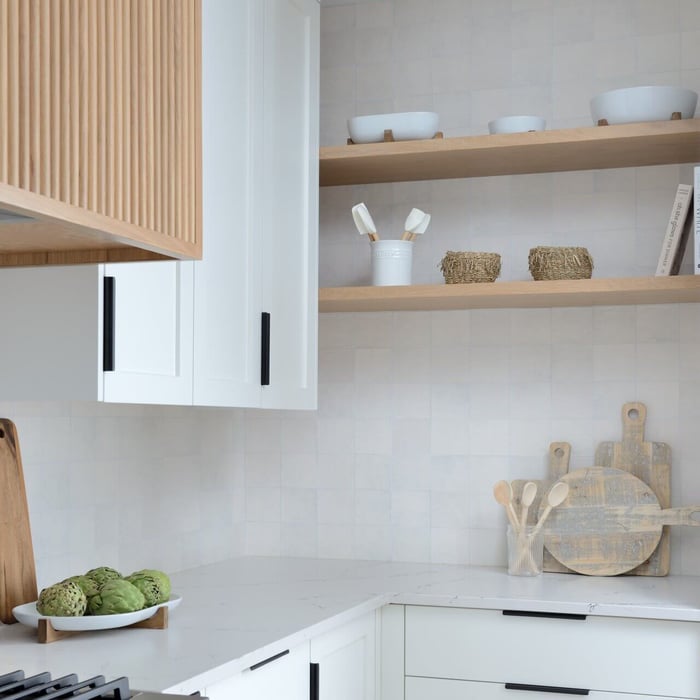
PEI Rating 2 Tiles are used mostly on walls, and can also potentially be installed on floors with extremely light traffic where only bare feet or soft-soled slippers are used. Examples of such areas might be residential bathrooms and bedrooms.
Our Candlestick wall tiles have a PEI 2 glaze. Pictured below is our Candlestick Grey Glossy in a vertical stack installation. Be sure to checkout out our subway layout blog post here!
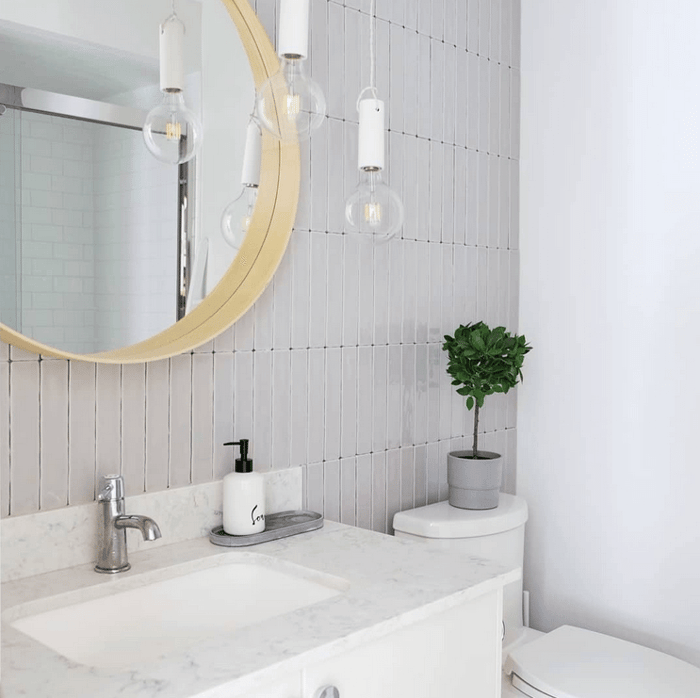
PEI Rating 3 Tiles are suitable for all residential floors and walls, such as kitchen floors and backsplashes .
Chex and several of our Decorative Patterns, are PEI 3 rated and perfect for residential use.
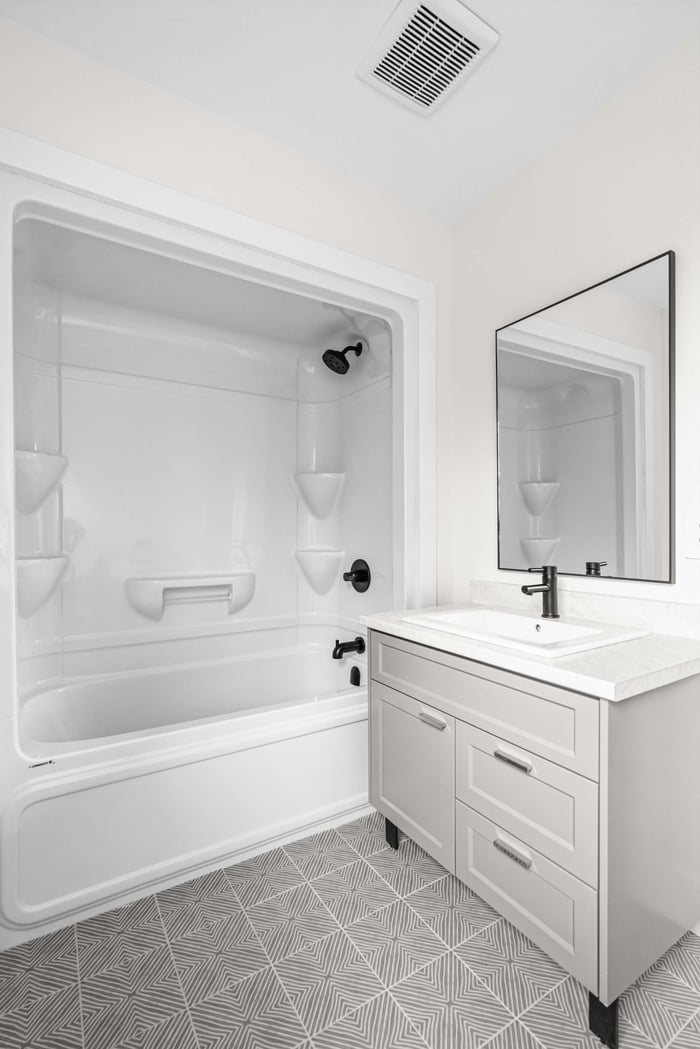
PEI Rating 4 Tiles are durable enough to be not only be installed in residential spaces, but also some light commercial uses, such as retail stores, restaurants, and offices. Many of our Decorative Patterns tiles have PEI 4 rating, including Formation White and Fleur. With tile durability like this, makes it an excellent choice for your everyday use like in this shower below. Be sure to check out our next blog post on "Slip Resistance!"
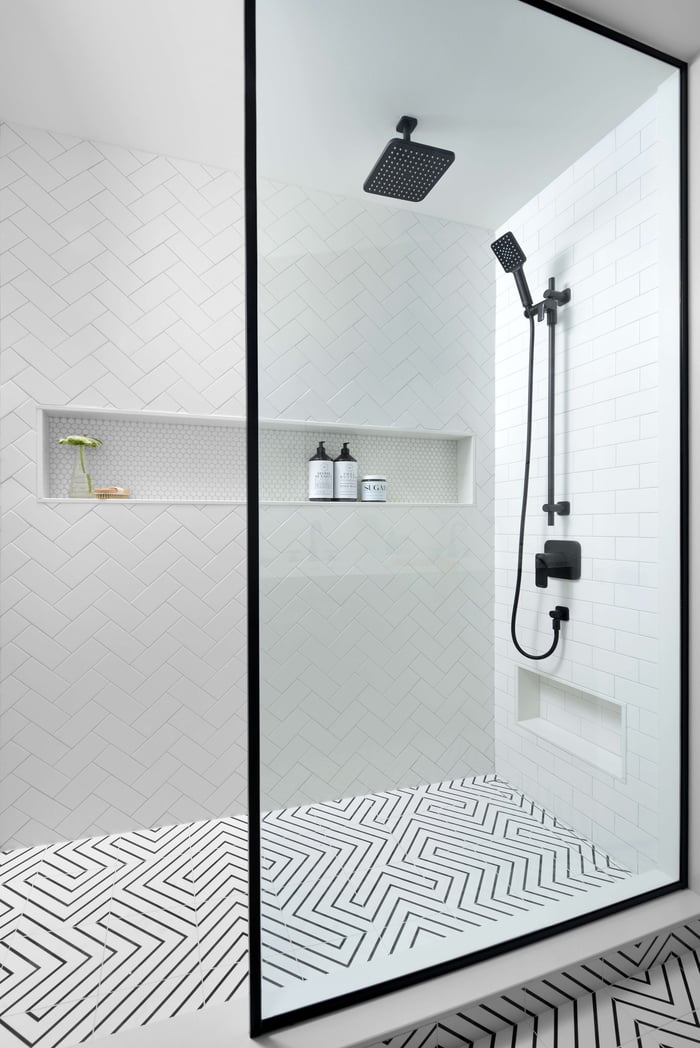 PEI Rating 5 Tiles represents the highest PEI score, which means that tiles with such a rating are resistant to visible wear with very high amounts of traffic. These can be used in heavy commercial areas like Shopping Malls and Airports. This is the highest honor of the tile durability scores, and when your installation calls for this be sure to let us know and we can help you find some commercial options!
PEI Rating 5 Tiles represents the highest PEI score, which means that tiles with such a rating are resistant to visible wear with very high amounts of traffic. These can be used in heavy commercial areas like Shopping Malls and Airports. This is the highest honor of the tile durability scores, and when your installation calls for this be sure to let us know and we can help you find some commercial options!
Now that I understand PEI tile durability rating, where do I find this when shopping tiles?
Most tile manufacturers list the PEI Rating on the tile’s tear sheet and/or its packaging. If you're visiting a digital store like us here, you can find the PEI durability rating in the specifications tab of any product page.
TL/DR...
PEI durability rating helps you assess whether a tile is resistant enough to long-term wear for the space that you're planning to use it in. There are 5 different levels:
PEI Level 1 This is the least resistant, and is suited for interior walls, both residential and commercial.
PEI Level 2 These tiles are also generally best on walls, although for certain products, they can also potentially used for light traffic residential floors.
PEI Level 3 These tiles are suitable for any residential floor or wall.
PEI Level 4 These are very durable tiles, and can be used in any residential space, as well as light commercial floors.
PEI Level 5 This is the highest tile durability rating that a tile can get, and is appropriate for heavy commercial spaces like airports.
You can find a tile’s PEI durability rating in the "Specification" tab for any of our products in our online store.
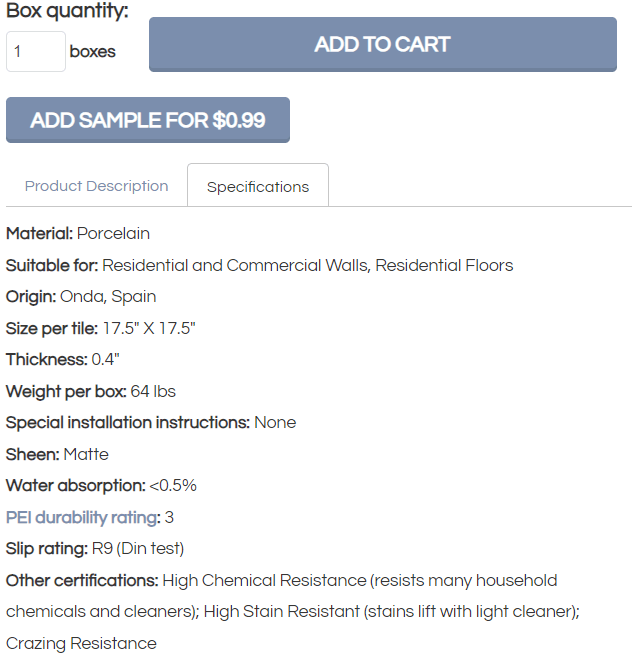
Hope this has helped you better understand PEI durability ratings and given you confidence that you're choosing the right tile for your space!

